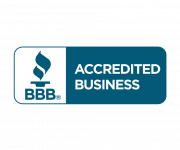
In June 2021, Facebook discontinued the Analytics tool. Not everyone was happy about another change in what seemed like a never-ending list of changes on the platform.
Facebook retired Facebook Analytics as part of an initiative to consolidate business tools.
If you have used or maybe managed a Facebook business account, you would have probably noticed that Facebook is a great platform to build communities, reach a larger audience, that also offers impressive advertising solutions to target your audience when compared to many other platforms.
Well, if you were an enthusiastic Facebook Analytics user, this change has meant two things for you. First, you had to prepare for Facebook Analytics to shut down by downloading your data. And second, you had to find another analytics platform.
As a marketer, it is important to monitor your analytics no matter what type of advertising you invest in. Analytics help marketers and advertisers increase their Return on Investment (ROI) by providing detailed insights on how audiences interact with Facebook Ads.
In this post, you will learn about Four Facebook Analytics Alternatives and what metrics you should be tracking in the future.
Facebook Analytics has been one of the more enhanced built-in social media metrics tools compared to others out there. Many in the digital marketing industry feel that Facebook Analytics was eliminated in order to push their other tools such as Facebook Business Suite, Ads Manager, and Events Manager.
Marketers can still use Facebook Business Suite, Facebook pixel and Facebook Conversion API, and Creator Studio.
The following are Four Facebook Analytics Tools that you will be able to use to replace Facebook Analytics.
1. Facebook Business Suite

Facebook first launched Business Suite late 2020. Facebook Business Suite is essentially the overview of your business account on Facebook. It is a multi-tool platform that helps businesses manage their presence across Facebook from a central place. Facebook Business Suite includes messaging, advertising, scheduling and posting, and analytics tools.
So, it’s safe to say that Facebook Business Suite is your hub for all-things Facebook.
Facebook Business Suite includes four key dashboards:
- Overview, which gives you a one-page summary of all your Facebook Marketing
- Trends, which shows you your Page’s reach over the span of each week
- Content, which shows you how your individual posts and ads performed
- Audience, which gives you the age, gender and location breakdown of your current and potential audiences
2. Facebook Pixel and Facebook Conversions API
Facebook Pixel and Conversion API are different tools, they still go hand in hand.
Both of these analytic tools track what people do on your website after they click on your ad. You will be able to analyze your advertising success through your audience’s:
- Purchases
- Browsing history
- Shopping Cart Behaviour
- Email Subscription Choices
- Check out process
So, what is the difference between the Pixel and the Facebook conversions API? Well, it’s their data collection practices.
Pixel collects data from your audience’s browser (i.e. browser-side tracking), while API collects data from your website’s server. You should use the two tools together for optimal results.
3. Hootsuite Analytics
Hootsuite tracking has stayed the same regardless of the changes on Facebook. On Hootsuite, users will continue to be able to track their Facebook performance alongside all their other social networks from the Hootsuite dashboard.
Hootsuite Analytics offers a complete picture of all your campaigns and activity in one place. This tool simplifies your social media analytics work by saving you time and making it easy to aggregate results across networks.
You will be able to see metrics on your social posts as well as:
- Clicks
- Comments
- Reach
- Shares
- Video views
- Video Reach
In addition, this tool also makes suggestions for the best time to post based on our historical performance.
What’s more, unlike other Facebook or Instagram-specific options, Hootsuite Analytics works with Facebook, Instagram, Pinterest, Linkedin, Youtube, and Twitter.
4. Creator Studio

Facebook Creator Studio is similar to Insights, but it gives advertisers more in-depth analytics metrics specific to their Facebook Pages, videos, and Stories. Creator Studio works with both Facebook and Instagram.
Creator Studio measures:
- Your overall marketing performance
- Your audience retention (this includes current followers and those who unfollowed you)
- Your engagement
- Earnings from monetization tools
- Your videos’ performance
Why should you track Facebook analytics?
Below we outline 5 reasons to track Facebook analytics
1. Understanding Performance
It is important to understand what is working and what is not working. The information found in analytics will help you inform the direction to take your strategy for the future. You can view what content drives engagement and see the reason people unfollow you.
2. Reporting
If you have to report to stakeholders, the reporting tools are incredibly beneficial. You can export graphics PDFs, spreadsheets, or charts from the analytics tool of your choice to share clear and concise findings and trends.
3. Understanding Your Audience
Make sure you are connecting with your target audience! Facebook’s vast amount of data will tell you exactly who is engaging with and following your content, with demographic and geographic data that covers age, sex, and location.
4. Optimization
Facebook Page analytics can show you what actions people take on your website. From clicking your contact information to navigating and clicking through your website. By educating yourself on your audience’s behavior you can refine your Page to steer users in the direction of your preferred actions.
5. Best Times to Post
Scheduling your posts at the best times on Facebook requires having the data when your followers are most likely to be online. This is incredibly helpful for planning posts.
Despite the discontinuation of Facebook Analytics, there is still plenty of data to analyze from this platform and a million different ways to do it. You will still be able to track your social media marketing performance with other Facebook analytic tools. You can also use third-party social media management solutions like Hootsuite.
Regardless of what you choose, it’s important to take key metrics into account in order to accomplish a data-driven strategy.





